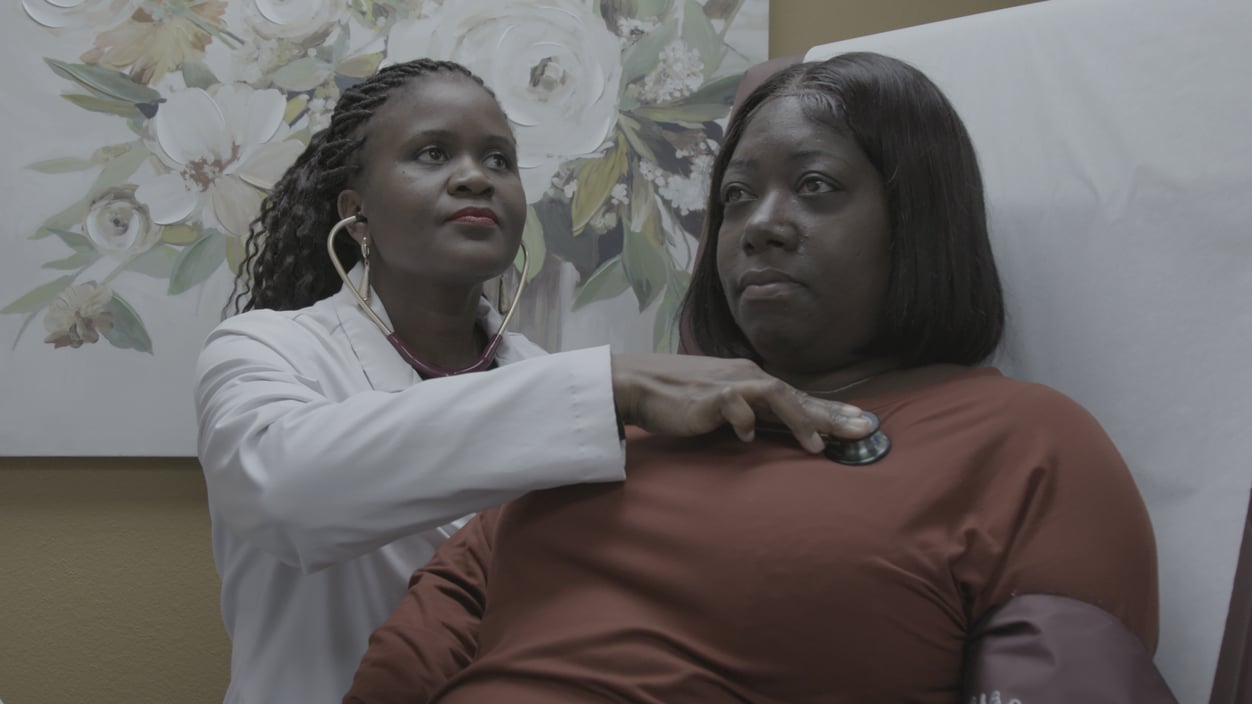Closer Look
The new country doctors treating rural America

STAT
Before going through her family residency program at the University of Alabama in Selma, physician Olusunmisola Oyesiku always thought she would practice in a big city, but then she ended up falling in love with rural medicine. "Being exposed to that wide diversity of care made me realize that, you know, this could actually be more fulfilling and rewarding for me in my medical career than if I had stuck to one other specialty and just done one thing for the rest of my life," she said.
Doctors like Oyesiku are needed in critically underserved rural communities. Multiple studies have shown that physicians who train in a rural area are much more likely to stay and practice in a rural community. There are now more than 160 accredited rural training programs according to The RTT Collaborative, a cooperative of rural residency programs. Watch the second installment of our rural health series from STAT's Hyacinth Empinado.
drug development
How a top FDA official thinks the agency could jump-start gene therapy businesses
Peter Marks, a top official at the FDA, wants to reinvigorate the gene therapy field through more accelerated approvals and a closer working relationship between regulators and companies. "We're not here to be like consultants. But at the end of the day, some of what we do is the functional equivalent of consultants, right?" he told STAT's Jason Mast. He has nicknamed a new agency initiative "Operation Warp Speed for Rare Disease." And he encourages questions from biotechs.
"I think my initial advice will be the same thing as my seventh grade history teacher, which was there is no question that is too stupid," he said, recalling his own experience on biotech's side of the table. "If it's on your mind, you should ask it. Because oftentimes questions that seem like they may not be the smartest, sometimes are the ones that have remarkable insight." Read the full interview.
health
Risk factors for dementia — the modifiable ones —vary by racial and ethnic group
Changing some health conditions can lower the chances of developing dementia. Eliminating hypertension, obesity, diabetes, low HDL ("bad") cholesterol, and sleep disorders could cut the risk by 40%. But a new study in PLOS One found that these factors pose more risk for some people than for others. Data from more than 850,000 people in England showed that while more white people (16%) developed dementia over the study's 20 years than South Asian people (9%), Black people (12%), and other ethnic groups (10%), the same risk factors often conferred a higher risk of dementia in Black and South Asian people, particularly for cardiovascular risk.
It's another reminder that most dementia research has focused on people of European descent. It also explains the greater susceptibility, earlier age of dementia onset, and shorter survival after dementia diagnosis in certain ethnic groups. The authors urge prevention efforts that take these differences into account, including access to care.


No comments